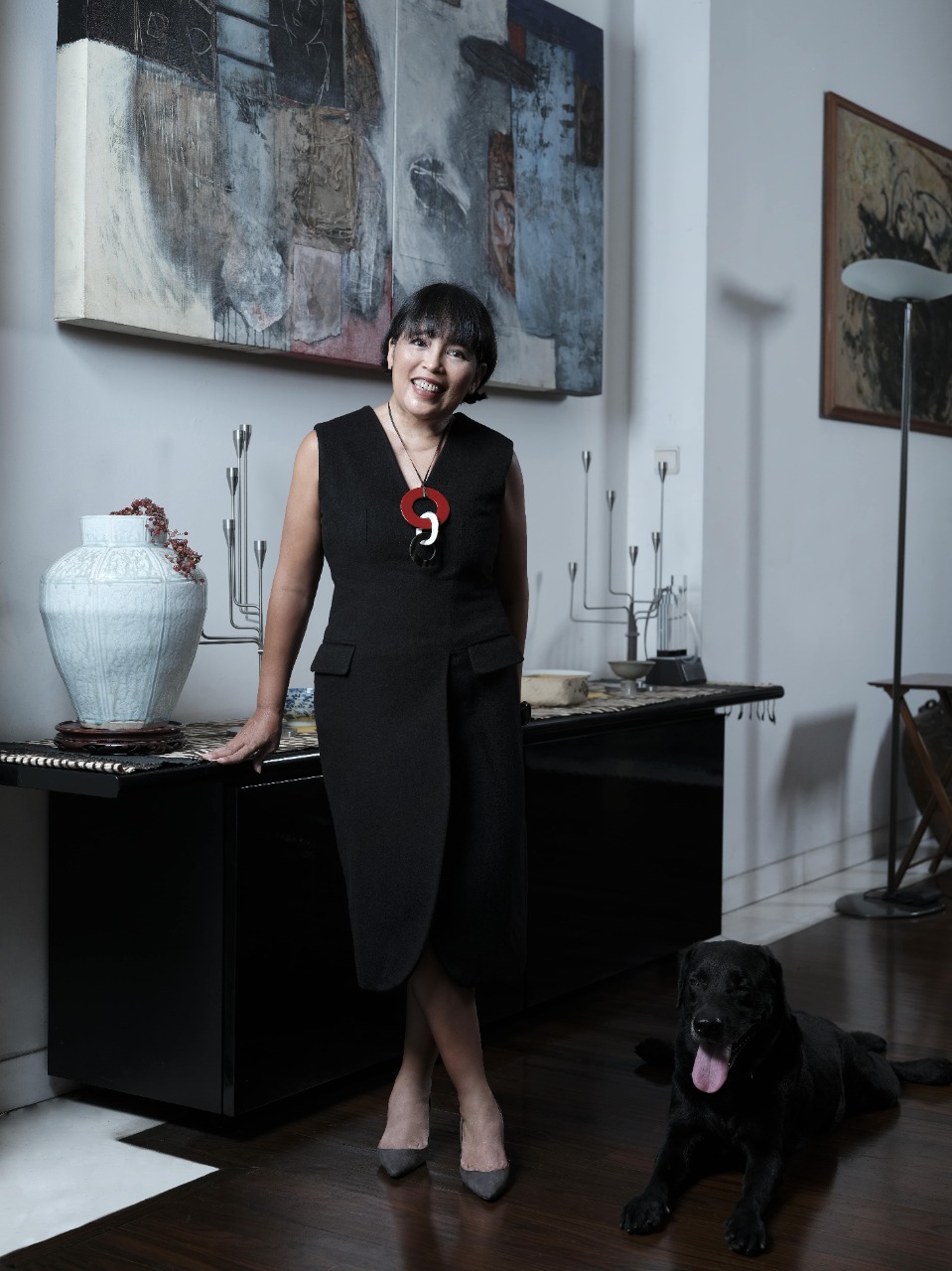CEO of GCM Group and Angel Investor
“A catalyst” is the word to portray the serial marathon-runner and mother-of-twins, Svida. Having been the impetus behind the digital transformation of the 40-year-old family publishing house, she is now fostering platforms to give the podium to all Indonesian women. Not just those on glossy magazine covers.
When she is not busy scouting young creative talents for the next Jakarta Fashion Week (which she founded), Svida bubbles with ideas of programs to empower fellow women entrepreneurs, like the national Wanita Wirausaha Femina program (Femina’s Entrepreneurial Women) which she also initiated.
Svida grew up surrounded by progressive intellectuals and mission-driven entrepreneurs. When she was eight years old, her parents and aunt co-founded the country’s first modern women’s magazine, Femina, to fill a vacuum in an Indonesian publishing industry that was essentially envisioned by men. Under the authoritarian regime of Suharto where only 100 self-restrained titles were authorized, the open tone of the avant-garde magazine offered a unique window on women’s roles in modern society and for years it enjoyed an uncontested monopoly on the women media landscape. But in the early 2000s, the end of Suharto’s rule opened the publishing market to international competitors. Meanwhile, digital disruption had led to many foretelling the death of traditional printed media.
But not Svida. When she took the reign of the publishing dynasty in 2007, after a few years working in financial services, she saw the opportunity to put the enterprise on a few footing, shifting from a pure content provider to becoming a community builder. She renamed her newly-appointed young chief editors “chief community officers”, to make them personally responsible for a given audience of women with shared interests. This departed from a one-size-fit-all editorial that could no longer use a single voice, to cater the various needs and aspirations of an increasingly diverse public of women readers. Svida understood that in this new era, women expected more than remote role models and not-so-conventional discourses: they needed to feel involved in communities closer to their own realities and more tailored to their own dreams.
Creating a space to catalyse women’s self-advancement has always been Svida’s inner mission. But Svida wants to make this space accessible to every single Indonesian woman, not just the well-heeled audience of Femina. Last year, she spun off some of her flagship platforms and events and created her own vehicle with GCM Group, to focus on community building and incubation platforms.
Svida is a strong believer that power and creativity comes from diversity, a principle that applies within women’s communities too. The Wanita.network (Women.network) she initiated, has already gathered more than 1,000 well-connected peers across different groups of age, regions and social classes: from the urbanist Millennial in Jakarta to housewives in Sumatra and women smallholders in Papua. Through the platform and regular webinars, they can discuss and exchange topics ranging from vaccination and child education to cooking and fashion.
For Svida, women don’t need to be high-figures or successful entrepreneurs to positively influence the space. A woman alone has power, but a collective of diverse women has impact.
As a media platform, Svida feels that GCM has the responsibility to bring more diverse views to promote equality in places where roles are still very much gendered, like parenting. For Svida, the GLI space needs to be conceived in a more holistic manner, to tackle resistant cultural and gender norms, that often occurs within the household. Education and sensitisation are important to both men and women, to show that a housewife can also be the breadwinner and plays a complementary, not a conflicting role to a husband. Svida warns against the risk of tokenising women: “To ‘give room’ for women participation is not [the same as] to give them an equal place” she says.
GLI newcomers risk falling into the binary or cookie cutter approach. But Svida knows all too well that empowering women requires first to understand their different needs and aspirations. The genderization of the investing space should not lead to oversimplification of women. Svida has spent her last ten year to make sure that every woman can have the space to express herself and a community she can relate to. A 60 year old widow in rural Java faces different challenges than the 25-year-old house cleaner in Jakarta, or the daughter of a scavenger in suburban Jakarta. Svida is the one who could bring a good dose of complexity and ensure investments bring about well-targeted impact.





